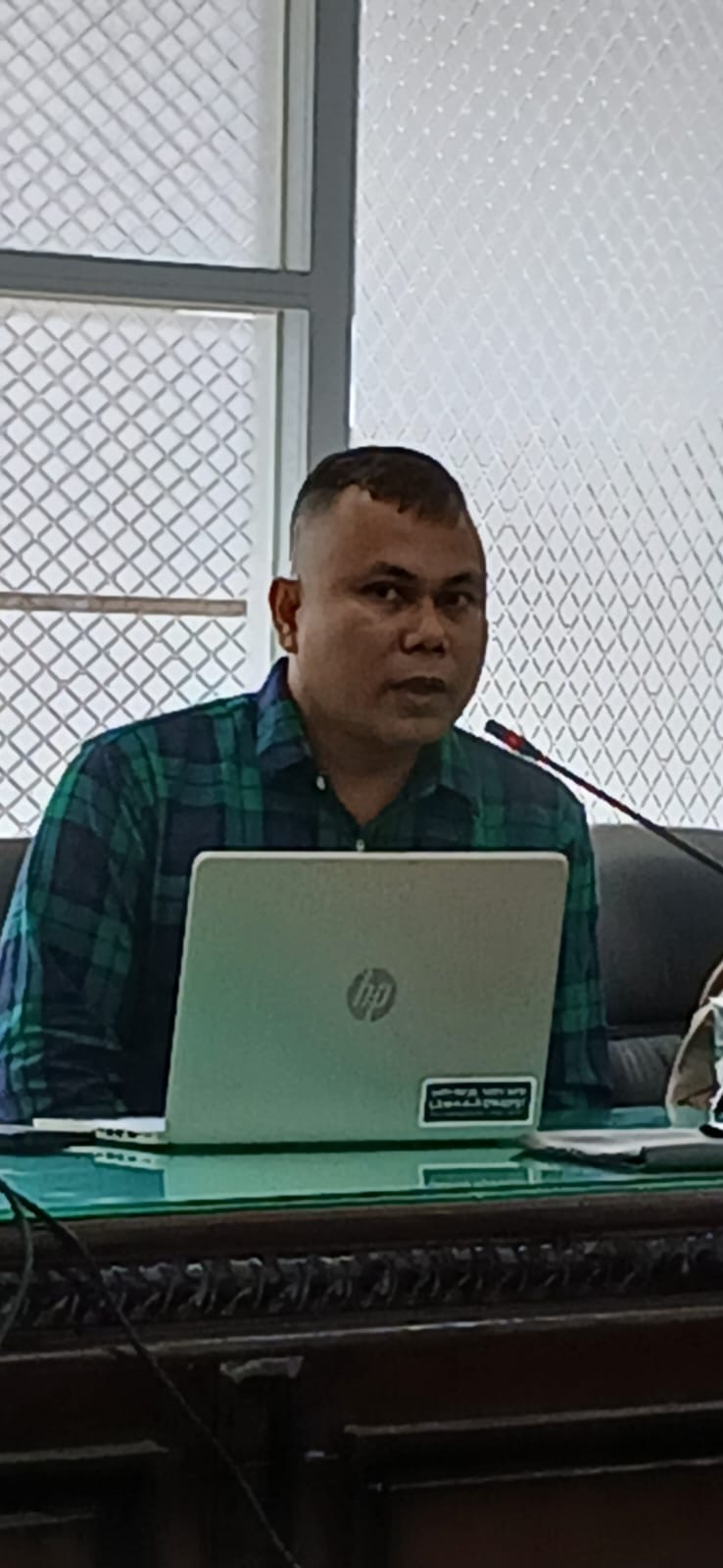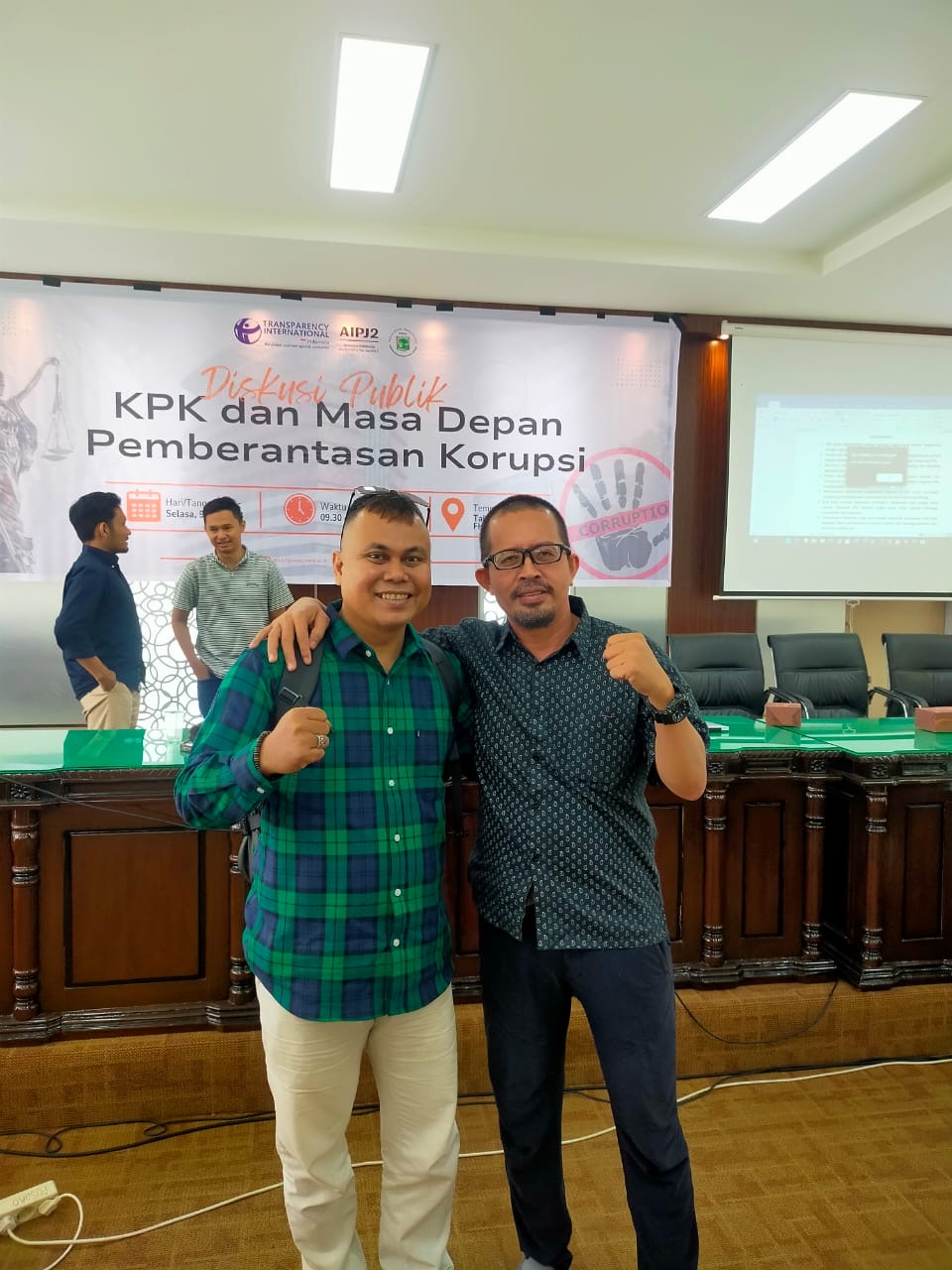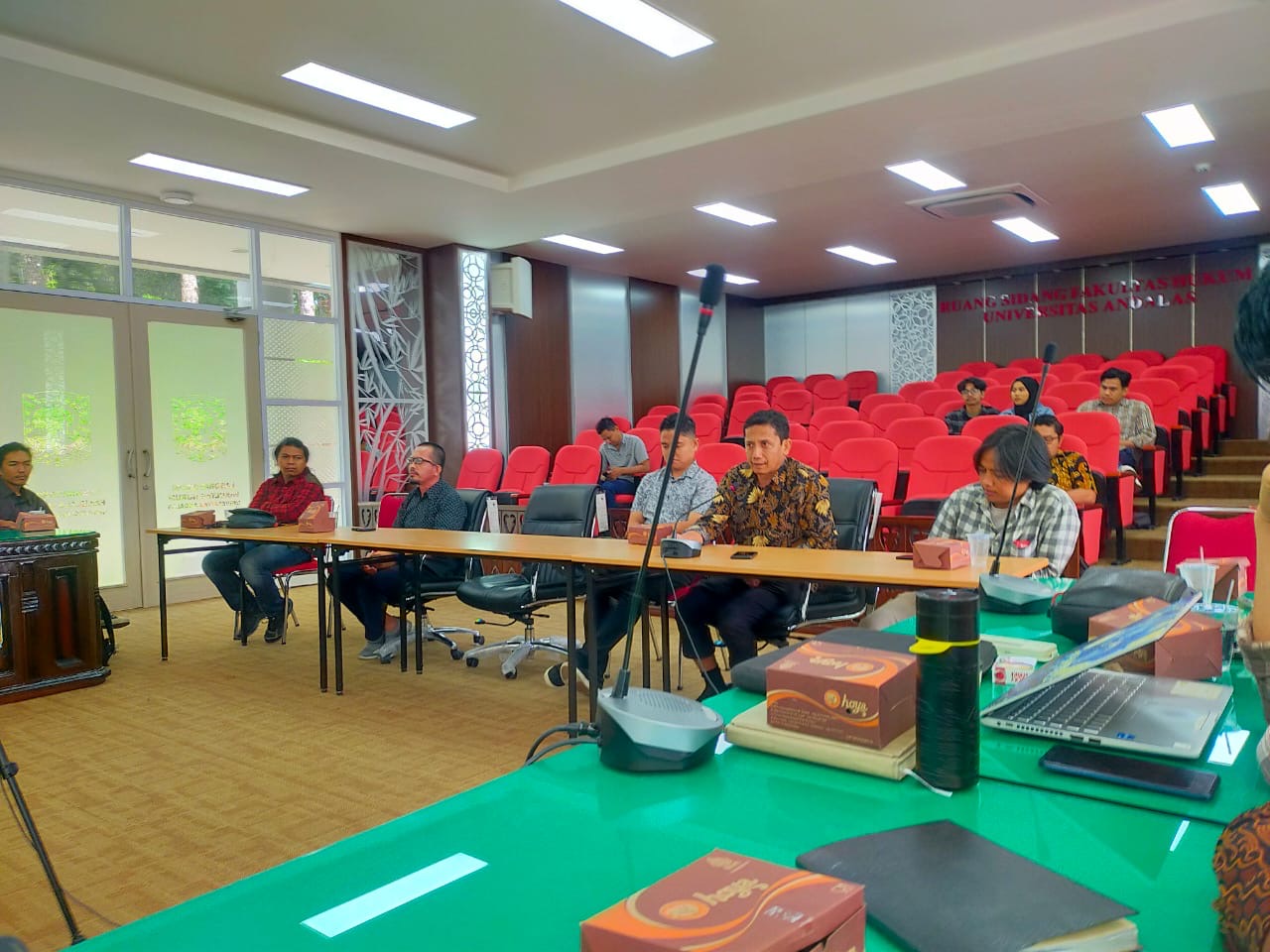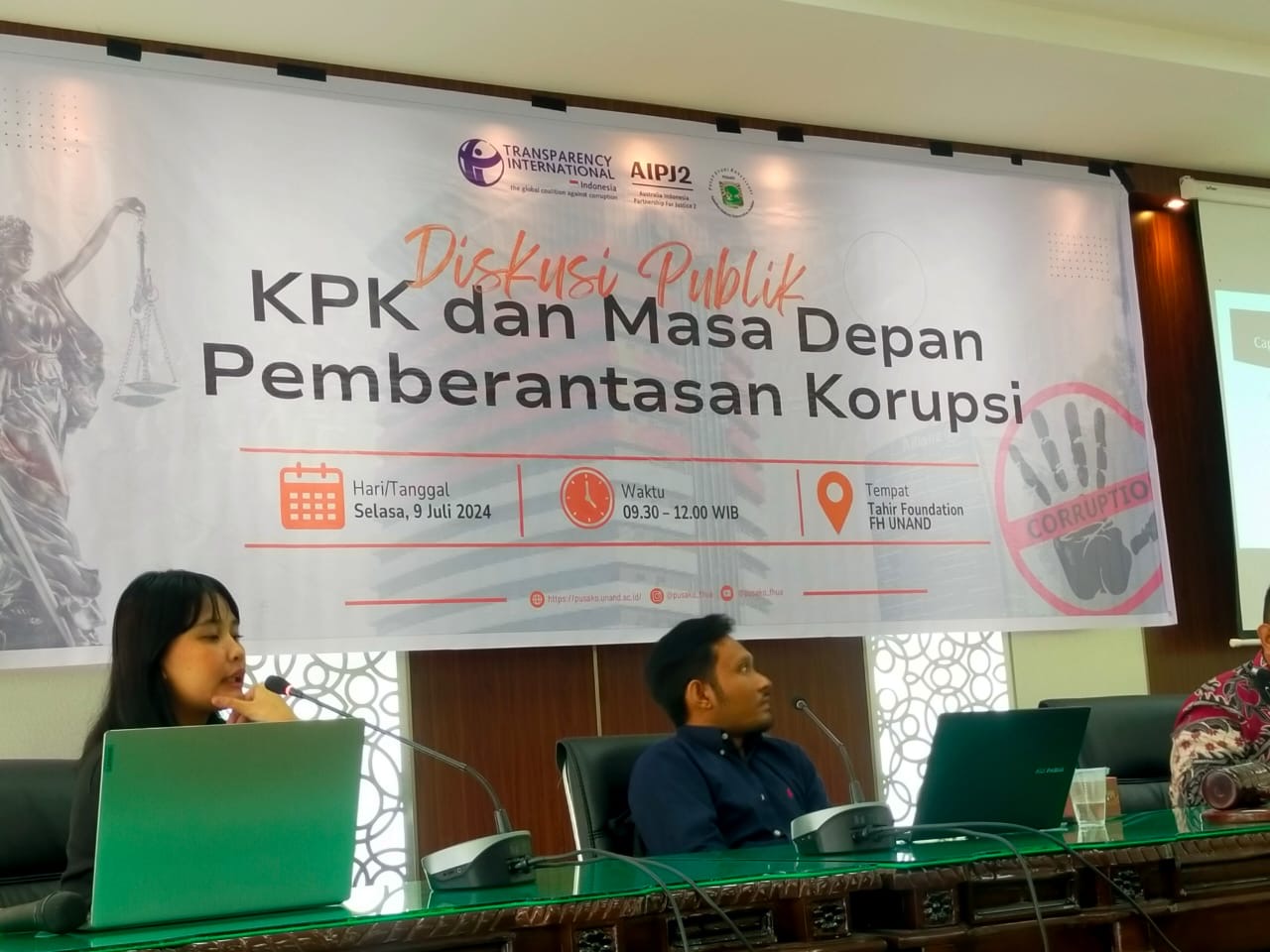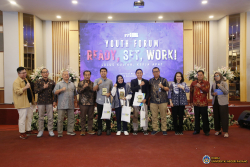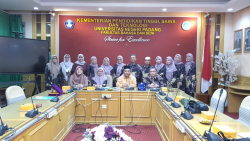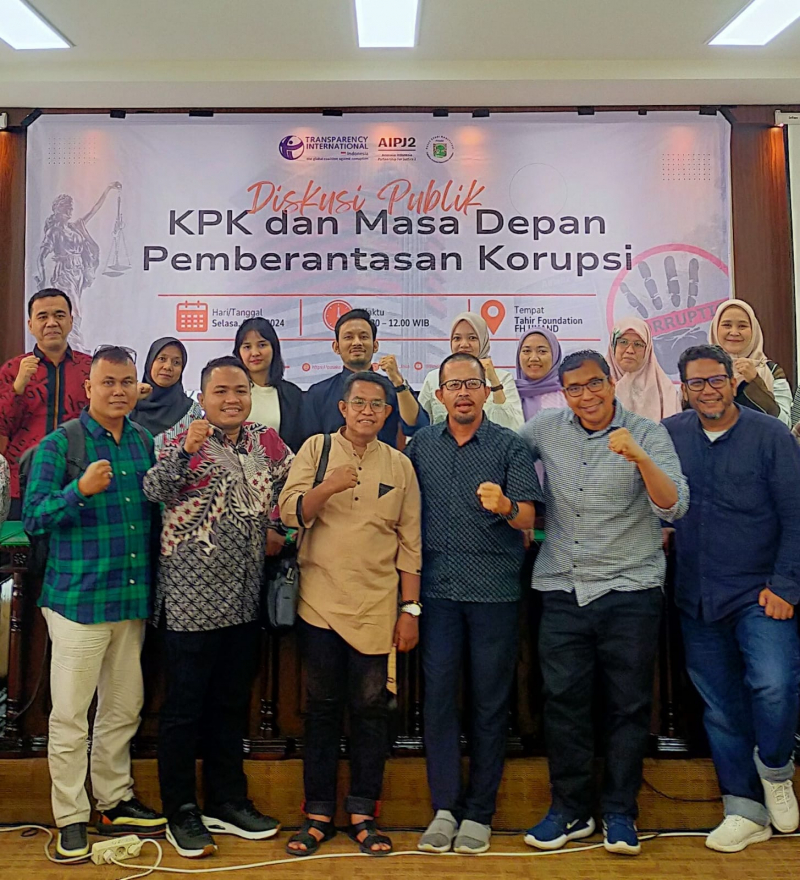
PK Gebrak UNP Attends Public Discussion KPK and the Future of Corruption Eradication
The UNP Joint Anti-Corruption Movement Study Center (PK-Gebrak-UNP) had the opportunity to be invited and attended the Public Discussion event "KPK and the Future of Corruption Eradication" at the Tahir Foundation Building, Andalas University, Tuesday, July 9, 2024. The event, which was initiated and organized by Tranparency International Indonesia (TI-Indonesia) in collaboration with Pusako-UNAND (Center for Constitutional Studies of Andalas University), invited universities, media, and civil society in West Sumatra, as well as anti-corruption study centers of various public and private universities such as Bung Hatta University and UMSB. Representing PK-Gebrak-UNP was the head of PK Gebrak UNP, Mohammad Isa Gautama, S.Pd., M.Si.
In the brainstorming session, Isa emphasized the importance of reactualizing and revitalizing the anti-corruption movement strategy. "So far, our movement has been partial and elitist, not touching the grassroots and tending to ignore early educational prevention in educational institutions. Even though there is already an anti-corruption curriculum, the majority of it is still an insertion into subjects and courses, not yet standing alone and being used as a core / mandatory curriculum. In the future, we also need to intensify anti-corruption campaigns and education through digital and social media, which is the main reference for public information these days," Isa said.
In a presentation based on Transparency International (TI) Indonesia's study on KPK performance assessment in Anti-Corruption Agency (ACA) Assessment 2023, a number of findings confirmed the weakening of the KPK after the revision of the KPK Law. The results of the study found that the majority of the 50 indicators divided into six measurement dimensions experienced a significant decline when compared to the KPK's performance before the revision of the Law.
In a presentation by TI-Indonesia researcher Sahel Muzzammil, the biggest decline rate occurred in the Independence dimension which decreased by 55% (from 83% in 2019 to 28% in 2023), then the Enforcement dimension which decreased by 22% (from 83% in 2019 to 61% in 2023), and the Inter-Agency Cooperation dimension which decreased by 25% (from 83% in 2019 to 58% in 2023). The other three dimensions of Human Resources and Budget; Accountability and Integrity; and Prevention also experienced a decline.
"In conclusion, from all indicators, all six have decreased from 2019. It can be said, the KPK "returned to zero point", if not to say minus," Sahel concluded.
Ichsan Kabullah, Ph.D, from Pusako Unand assessed that the Revision of the KPK Law in 2019 made the KPK's performance decline. The striking difference, according to Ichsan, between the KPK before 2019 and after 2019 is like earth and sky, is that from an independent institution to a dependency, the Enforcement Paradigm becomes prevention, a simple hierarchy becomes convoluted, superbody to "over-body", and employee status from autonomous to ASN. "Public awareness of the KPK is needed. The problem is that Prabowo as President is not known to be close to civil society," Ichsan worried.
Researcher from PBHI (Indonesian Legal Aid Association), Annisa Azzahra highlighted the growing phenomenon of State Capture Corruption everywhere. SCR is structured corruption that is "legal", resulting in a lack of state alignment. Finally, the public interest is displaced in favor of the interests of a group of people. "One of them is by weakening executive institutions, weakening civil society (various criminalizations), weakening the KPK, and weakening judicial institutions and intervening in the judiciary," said Annisa.
Also presenting his paper, AURIGA's Law Enforcement Division Coordinator, Roni Saputra, M.H. Roni invited the audience to look at the alarming numbers related to SCR that occur in the realm of Natural Resources corruption. As an illustration, the case of Freeport tailings, flowed into the river to the sea. More than 6,000 people are affected by tailings. 300 million tons of tailings caused damage to rivers and the coast of Mimika. "There are many more cases of corruption in natural resources that indicate State Capture Corruption. This implies how corruption in our country has not only carried state financial losses but also losses to the state economy," said Roni.
Present on this rare occasion was Nanang Farid Syam, a former employee of the first batch of KPK employees since its establishment and latterly one of the KPK Employee Wadah activists who is known to be vocal and active in calling for strengthening the KPK rather than weakening the KPK in the 2019-2020 period. "The future of corruption eradication is not in the KPK, but in all of us, higher education and civil society. I invite us all to further strengthen the network and movement," said Nanang. [MIG].
